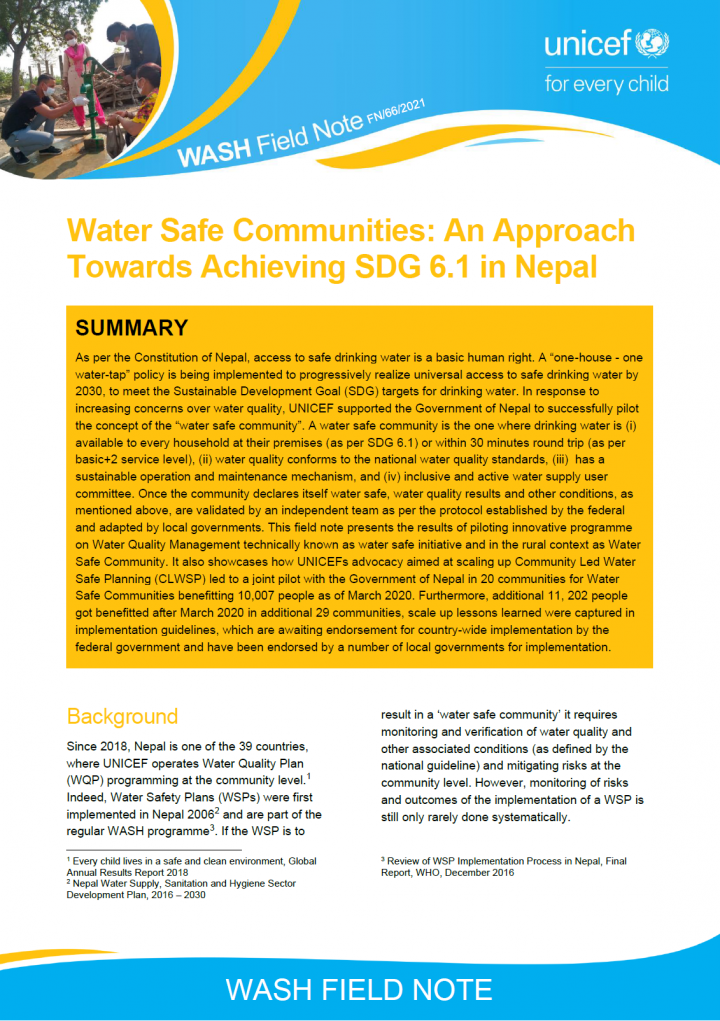Water Safe Communities: An Approach Towards Achieving SDG 6.1 in Nepal Dhakal, S.B., Bishwakarma, D.R., Shrestha, R., Ahmad, T. (2021)
As per the Constitution of Nepal, access to safe drinking water is a basic human right. A “one-house - one water-tap” policy is being implemented to progressively realize universal access to safe drinking water by 2030, to meet the Sustainable Development Goal (SDG) targets for drinking water. In response to increasing concerns over water quality, UNICEF supported the Government of Nepal to successfully pilot the concept of the “water safe community”. A water safe community is the one where drinking water is (i) available to every household at their premises (as per SDG 6.1) or within 30 minutes round trip (as per basic+2 service level), (ii) water quality conforms to the national water quality standards, (iii) has a sustainable operation and maintenance mechanism, and (iv) inclusive and active water supply user committee. Once the community declares itself water safe, water quality results and other conditions, as mentioned above, are validated by an independent team as per the protocol established by the federal and adapted by local governments. This field note presents the results of piloting innovative programme on Water Quality Management technically known as water safe initiative and in the rural context as Water Safe Community. It also showcases how UNICEFs advocacy aimed at scaling up Community Led Water Safe Planning (CLWSP) led to a joint pilot with the Government of Nepal in 20 communities for Water Safe Communities benefitting 10,007 people as of March 2020. Furthermore, additional 11, 202 people got benefitted after March 2020 in additional 29 communities, scale up lessons learned were captured in implementation guidelines, which are awaiting endorsement for country-wide implementation by the federal government and have been endorsed by a number of local governments for implementation.
Bibliographic information
Dhakal, S.B., Bishwakarma, D.R., Shrestha, R., Ahmad, T. (2021). Water Safe Communities: An Approach Towards Achieving SDG 6.1 in Nepal UNICEF
Filter / Tags
English
Downloads
Water Safe Communities: An Approach Towards Achieving SDG 6.1 in Nepal
Type: application/pdf
Size: 0.71 MB

Published in: 2021
Pages: 11
Publisher:
UNICEF
Author(s):
Dhakal, S.B., Bishwakarma, D.R., Shrestha, R., Ahmad, T.
Uploaded by:
IBBK
Internationales Biogas und Bioenergie Kompetenzzentrum
